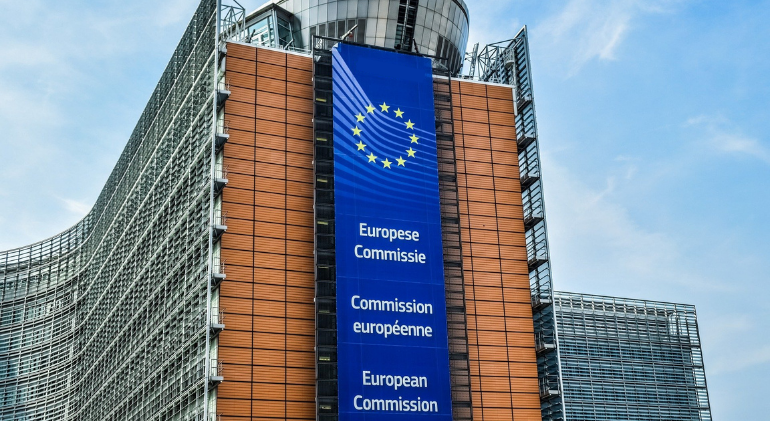

Some reports say that it would be impossible to live in the digital world outside of the ecosystem created by Big Tech giants. The concentration of power in a small number of platforms has allowed some tech companies, popularly known as the Four Horsemen” to exercise unparalleled economic power and social impact almost without any oversight by regulators. These companies have complete market dominance, each in their respective field of expertise: Apple in consumer electronics and mobile operating systems; Facebook in the social media, Google in online searches, video-sharing and mapping-based navigation; and, finally, Amazon in the e-commerce market. Hence, there are genuine concerns that the market dominance of the Four Horsemen may threaten individual freedoms, competition, and democratic institutions. Even the EU’s “Tax Lady”, Margrethe Vestager, voiced concerns over Big Tech’s monopolistic practices. Consequently, the European Commission (“Commission”) has proposed an ambitious reform concerning gatekeepers and digital markets that aims to prevent companies from imposing unfair conditions on businesses and consumers.
However, the journey towards reinventing the EU digital markets has been ongoing for quite some time. The proposal on gatekeepers and digital markets is only a part of the broader picture.
The Digital Markets Act (“DMA”) is part of the Commission’s Digital Services Act package (more details available here). The package also includes the Digital Services Act (more details available here), which focuses on illegal online content, and the liability of online platforms. The DMA is envisaged to apply only to the providers of “core platform services”, encompassing large digital platforms. These include social networks, search engines, messaging services, operating systems, and other online intermediation services. Moreover, the DMA gives the Commission powers to address unfair practices ex-ante. The move was justified by greater access to information and a swift and more flexible approach. Aiming to tackle the problem of large online platforms, the DMA establishes a comprehensive set of narrowly defined objective criteria for qualifying a large online platform as a so-called “gatekeeper”.
In simple terms, gatekeepers are intermediaries that gather and broadcast information within organizations and communities of all kinds. Essentially, gatekeepers would include, among others, search engines, social networks, app stores, cloud services and digital advertising platforms.
The criteria for qualifying someone as a gatekeeper takes into account: the platform’s size and impact on the EU internal market; its control of an important gateway for business users to reach end-users; and an entrenched and durable market position. Said requirements constitute the “three criteria test”… To pass the “three criteria test” a platform should meet the following quantitative thresholds during three consecutive years:
Providers of core platform services meeting these three criteria must notify the Commission within three months after meeting the thresholds. Then, the ball is in the Commission’s court. Namely, the Commission then determines whether to designate the platform in question as a gatekeeper. More importantly and somewhat controversially, the Commission can assign a gatekeeper status even if a platform does not meet the “three criteria test”. Once the platform is designated as a gatekeeper, it will have to comply with the “do’s” and “don’ts” listed in the DMA within the next six months. In other words, the gatekeepers will need to implement a series of obligations laid down in the DMA in their daily operations to ensure fair and open digital markets.
The DMA contains a whole plethora of rules and mechanisms concerning digital markets, but since we are only giving an overview of major changes and innovations in the digital legislature, here are some of the major “do’s and don’ts” for gatekeepers:
The gatekeeper platforms shall not:
Probably one of the most interesting and crucial questions is how the EU plans to enforce the prescribed rules i.e. what mechanisms will be at EU’s disposal when dealing with gatekeepers. To ensure compliance with the obligations, the aforementioned rules will be enforced through a system of fines and periodic penalty payments.
Furthermore, the DMA prescribes a procedure for assessing compliance with new rules on gatekeepers. Before adopting a decision on non-compliance, the Commission will inform the gatekeeper concerned of its preliminary findings and explain possible measures that may be taken against them. If the Commission adopts a non-compliance decision, the gatekeeper will be ordered by the Commission to cease and desist with the infringement within a set deadline. They will also have to provide the Commission with a plan to ensure future compliance. Additionally, the European Court of Justice will have unlimited jurisdiction in respect to fines and penalty payments.
The DMA prescribes three types of ramifications in case of non-compliance with the new rules. Firstly, gatekeepers may be subject to fines of up to 10% of their total worldwide annual turnover. Secondly, the Commission may impose periodic penalty payments of up to 5% of the company`s daily turnover. Thirdly, if a gatekeeper systematically infringes on its DMA obligations, additional remedies will be possible. These additional remedies may be imposed only after a market investigation and should be proportionate to the breach. Furthermore, they may be both financial and non-financial, such as breaking up a certain business.
It remains to be seen whether the Four Horsemen will continue to reign supreme in digital economies, or the DMA will actually bring an end to their rule.
Authors: Jelena Škorić, Jovana Trivunović, David Spaić